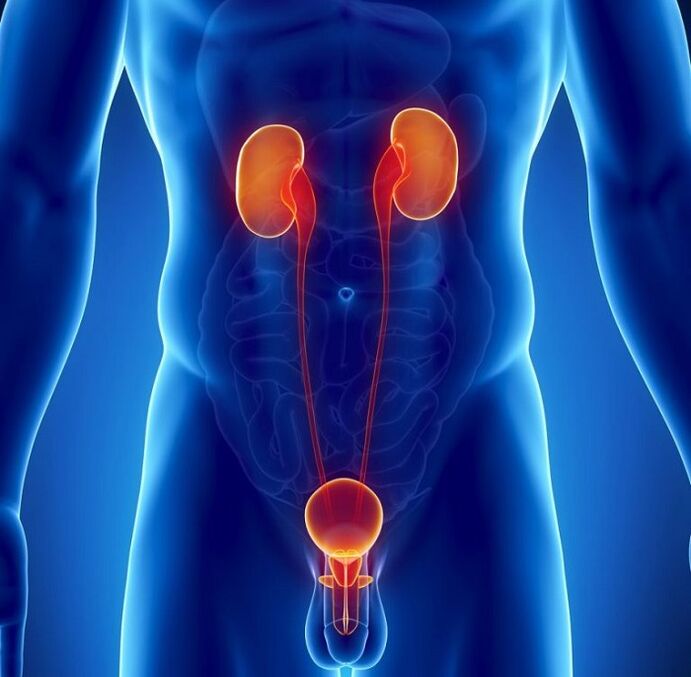When figuring out how to get rid of erectile dysfunction, increase or normalize potency, it's not always clear what potency means and what is considered normal.Men view this concept as the ability to conceive and satisfy a woman, and rightly so.But there are other aspects to sexual power that should be discussed in more detail.
What is effectiveness?

The meaning of the word is defined as "the ability to perform, produce, create".Potency, it turns out, is reproduction and fulfilling male sexual obligations.Sexologists define male potency as the ability to perform reproductive functions.Quite narrow and applied understanding, characteristics:
- Ejaculatory ability with high sperm quality;
- Stability of erectile function;
- speed of showing excitement;
- duration of sexual intercourse;
- The ability to feel satisfied and please your partner.
In its broadest sense, competence refers to the ability to be sexually active and to be a father.It's not entirely correct to identify this concept with the number and frequency of contact, just like sexual desire - these concepts are not synonymous, but simply components of a man's general sexual behavior.
The components of sexual desire: desire, erection, fertility, depend on many factors.Specifically the level of testosterone concentration in the blood.Androgens determine desire, likelihood of pregnancy, and erectile function.The peak of testosterone synthesis occurs between the ages of 25 and 30, but psychologists believe that not every man can boast of strong sexual performance during this period.Increased desire and ability for frequent contact - yes, if the body is normally healthy, but the ability to satisfy a partner and prolong the behavior is not always a partner for young people.
In addition, erectile function can be affected by negative external factors: stress, moral, mental stress.In most cases, it takes 30 years for a man to reach a certain level of financial, emotional, and psychological stability, and therefore his abilities return to normal.
Effectiveness Standard Indicators

After understanding what effectiveness is, it is necessary to determine the criteria for the indicator.However, this is difficult because everyone has their own characteristics.Some people can maintain an erection for 20-25 minutes, while for others, 5 minutes is too much.
Important!The concept of normal male sexual ability refers to the patient's ability to keep the sexual organ in an erect state throughout the sexual intercourse, and it does not always end with ejaculation.
The absence of an erection in certain circumstances, regardless of a man's wishes, should not be considered a deviation from the norm.This may be the influence of external, internal factors that have nothing to do with sexual performance.It's impossible to pinpoint quantitative metrics exactly, but there are generally accepted gradings:
- Men aged 20-30 have had sexual intercourse at least 4 times in 7 days;
- 30-35 years old - at least 3 times in 7 days;
- 60 years – Perform at least 3 acts in 10-12 days.
These are average indicators compiled taking into account normal relationships in normal healthy men.Remarkably, 69-72% of the time, it remains effective 60 years later.Nowadays, sexologists point out that older patients, more often men, have a higher potential than boys aged 17-23.But the condition of almost complete loss of sexual desire is more common in younger men under the age of 25.
Important!It is fundamentally wrong to relate the size of sexual organs to sexual performance.Sexual activity does not change based on body size.The only exception is those men whose body shape is the determining factor. Because of "insufficient length", the men themselves refuse to have normal sex.But if intercourse lasts less than 2 minutes, it's worth paying attention to, especially if this is the norm for men and not just random premature ejaculation.
Impact on Chronic Disease Efficacy

Some chronic conditions can manifest as decreased erections and decreased libido—major components of male sexual behavior.Particularly dangerous chronic conditions include endocrine system dysfunction and pelvic organ disease.
Three groups of diseases can affect potency:
- Pathology of the genitourinary system.These include prostatitis, urethritis, inflammatory and/or infectious renal lesions, and sexually transmitted diseases.The urinary and reproductive systems are closely connected, so any disease can cause chronic urinary retention, leading to cystitis, nephritis and stone formation.All factors can disrupt testosterone synthesis, which manifests itself as a decrease in male strength.Pathogens such as Chlamydia, Ureaplasma and Neisseria gonorrhoeae disrupt the microflora and affect the prostate and adnexa.Lack of treatment may lead to infertility.
- cardiovascular system diseasesCauses irreversible changes in large blood vessels and capillaries.Impaired blood supply can lead to disruption of the vascular network of the reproductive organs, ultimately leading to the inability to have an erection and reduced sexual performance.
- Psychiatric neurological diseases and disorders,This also includes all types of bad habit addiction.Psychogenic impotence is one of the scariest and most difficult to treat forms of impotence.Men lose their libido, have no desire, and their emotional background is disturbed.Antidepressant treatments have side effects—the drug is less effective.As for alcohol and drug abuse, loss of libido and complete impotence result in 100% of cases.
Regardless of the severity or the period of exacerbation, chronic illness always affects a man's sexual performance.Complete loss of potency and fertility can be avoided only by early detection of the disease, prompt initiation of treatment and maintenance of a healthy lifestyle.


























